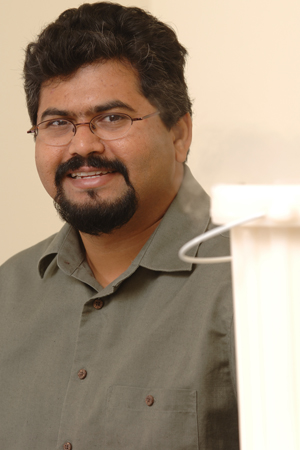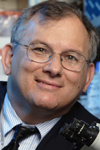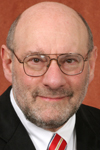
|
TOP STORIES |
|
HAPPY 10TH ANNIVERSARY Ten years ago, a K-12 school stood where the College of Medicine’s main buildings now stand. Some of our current students were in middle school. Then-PIMS Director Myra Hurt and her small army were working on an innovative medical school to address a physician shortage that most experts didn’t yet know our country had. And Florida legislators were locked in combat over whether that school was even needed, let alone likely to succeed.
In June, 10 years will have passed since Gov. Jeb Bush signed the measure authorizing the creation of the Florida State University College of Medicine. In 10 short years, this remarkable school has achieved much that’s worth celebrating – and the celebration will continue throughout the year.
Watch for news of upcoming events. A big to-do is being planned for the evening of April 9 (see more in the Alumni News section). Also, there are plans in the works for a special event in the fall, plus a series of service projects benefiting all of the cities in which we have regional campuses. Watch, too, for a new look in the atrium.
And read the fascinating story behind this medical school’s birth in the spring issue of FSU MED magazine.
PREMIER PAPER Faculty of 1000 Biology is an online service that highlights and evaluates the most interesting papers published in the biological sciences, based on recommendations from more than 2,000 of the world's top researchers. Last year, these experts have concluded, one of the most interesting papers was written by Akash Gunjan, an assistant professor in the Department of Biomedical Sciences.
Gunjan’s discovery solves a mystery about proteins
that play a vital role in transferring the human genetic code from one cell
to another. It could lead to new ways to help the body fight cancer and
other diseases.
For more about faculty research and other items, see Faculty News.
COLLEGE HONORED BY RETIREMENT HOUSING FOUNDATION The College of Medicine has received the rarely given Rex Chapman Award, thanks to volunteer efforts at Lake Ella Manor by the Department of Geriatrics and our medical students. The award is given out by the Retirement Housing Foundation in honor of the late Rex Chapman, a longtime foundation leader. It recognizes outstanding service on behalf of others. Lisa Granville, M.D., associate chair and professor of geriatrics, and Ceola Grant, coordinator of academic support in the department, will accept the award for the college Feb. 26 in Long Beach, Calif.
This is a sampling from the nomination form: "The FSU College of Medicine medical students, staff and faculty truly went above and beyond not only providing volunteers but also assisting with supplies, food and a countless number of health presentations. This year alone we have benefited from over 80 volunteers from the FSU College of Medicine. It has not only improved the wellness programs but it has provided much needed companionship for our residents. We are very grateful for the FSU College of Medicine’s continued volunteer involvement."
NEW FACES
Richard
Nowakowski, Ph.D., officially becomes
professor and chair of the Department of
Marshall Kapp,
J.D., M.P.H., is the director of the Florida State University Center for
Innovative
Laura Brock, M.S. in public administration and public policy, M.A. in
religion, returns to the College of
THE COLLEGE OF MEDICINE SHOW Working with the Agency for Health Care Administration, The Florida Channel has produced a series of programs about medical education in Florida. Its story specifically focusing on the Florida State University College of Medicine is scheduled to air the week of Feb. 8 across Florida on all PBS stations and The Florida Channel. The program will air multiple times the week of the 8th on those channels.
In this region, the program will air Feb. 11 at 8 p.m. and again Sunday (Feb. 14) at 11 a.m. on WFSU. After the show airs, it also will be available online at WFSU.org. We will place that link on our Web site at the appropriate time.
RESEARCH FAIR Our annual research fair is scheduled for Feb. 9 in the atrium. Senior Associate Dean Myra Hurt invites ALL researchers in the College of Medicine to present posters of their work: medical student researchers, graduate students, staff and faculty. Medical students on regional campuses are also invited to send posters for display. "We will provide foam board and easels for all presentations," she said. "Medical student fellowship winners from 2009 will be among those presenting their work. We ask that presenters be with their poster during the noon hour. This serves as an opportunity for first-year med students to identify research projects of interest for an application for the 2010 Medical Student Research Fellowships in March. If you will be presenting a poster, please notify Wendy Zebrowski so we’re prepared with easels, etc. A light lunch will be served."
|
 |
 |
 |
| E-mail Alumni Affairs Phone: 850-645-9428 | ||
|
|
|
Florida State University
|
College of Medicine
|
Copyright 2013
|
 The
paper was
The
paper was

 Collaboration in Medicine & Law and a faculty member in both the
College of Medicine and College of Law. The center explores educational,
research and advocacy avenues for collaboration and cooperation between the
medical and legal professions on behalf of the well-being of consumers who
are both physicians' patients and attorneys' clients. Formerly, he served as
the Garwin Distinguished Professor of Law and Medicine at Southern Illinois
University Schools of Law and Medicine. He also is professor emeritus from
Wright State University School of Medicine and served for more than 20 years
as a member of the adjunct faculty at the University of Dayton School of
Law. He is the current editor of the American College of Legal Medicine’s
Journal of Legal Medicine and serves on the editorial boards of several
other major journals in the health law field. He has published and spoken
extensively on topics in health law, medical ethics, and law and aging.
Collaboration in Medicine & Law and a faculty member in both the
College of Medicine and College of Law. The center explores educational,
research and advocacy avenues for collaboration and cooperation between the
medical and legal professions on behalf of the well-being of consumers who
are both physicians' patients and attorneys' clients. Formerly, he served as
the Garwin Distinguished Professor of Law and Medicine at Southern Illinois
University Schools of Law and Medicine. He also is professor emeritus from
Wright State University School of Medicine and served for more than 20 years
as a member of the adjunct faculty at the University of Dayton School of
Law. He is the current editor of the American College of Legal Medicine’s
Journal of Legal Medicine and serves on the editorial boards of several
other major journals in the health law field. He has published and spoken
extensively on topics in health law, medical ethics, and law and aging. Medicine as our new director of external
relations to help highlight our 10-year story. She previously was director
of health affairs and special projects at the medical school before leaving
to become part of outgoing FSU President T.K. Wetherell’s administrative
team. More recently, Brock was senior staff director and chief legislative
analyst for the Education Policy Council and the State Universities &
Private Colleges Committee of the Florida House of Representatives. One of
Brock’s primary objectives in her new role is to help develop a coordinated
and strategic advocacy program that promotes the College of Medicine’s
unique mission – among both public and private constituents, locally and at
each of our regional campuses.
Medicine as our new director of external
relations to help highlight our 10-year story. She previously was director
of health affairs and special projects at the medical school before leaving
to become part of outgoing FSU President T.K. Wetherell’s administrative
team. More recently, Brock was senior staff director and chief legislative
analyst for the Education Policy Council and the State Universities &
Private Colleges Committee of the Florida House of Representatives. One of
Brock’s primary objectives in her new role is to help develop a coordinated
and strategic advocacy program that promotes the College of Medicine’s
unique mission – among both public and private constituents, locally and at
each of our regional campuses.